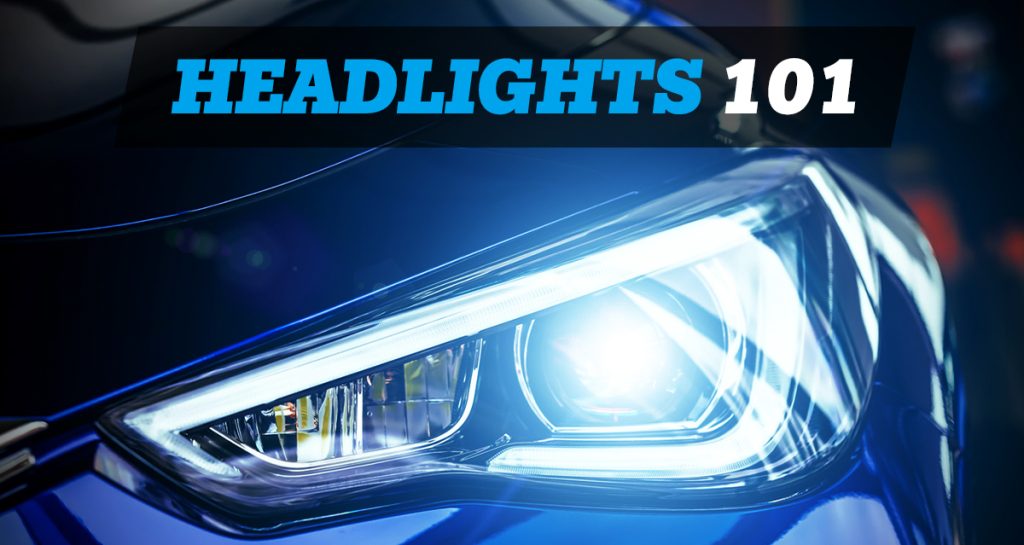If you’ve ever driven on winding country roads without street lights, you understand exactly why good headlights are so important. Let’s face it, driving comes with enough hazards already. So, the last thing you need are poor headlights limiting your visibility. To shed a little light on the subject, we decided to take a look at the world of headlight technology.
Standard Halogen
Although halogen bulbs rank as the most common headlight on the market, they often receive a “poor” rating in vehicle safety tests. They produce a small pool of yellow light directly in front of the vehicle and last from 450-1,000 hours.
High Intensity Discharge (HIDs)
HIDs last 2-3 times longer than halogens, averaging approximately 2,000 hours. They also use very little electricity yet produce much brighter light.
Light-Emitting Diode (LEDs)
LEDs are much brighter than halogen bulbs and as bright as many HIDs. They consume far less power and last a very long time. However, LEDs produce a significant amount of heat, requiring an internal heat control system.
Adaptive Headlights
Not a headlight exactly, this is more of a technical feature that can be paired with HIDs or LEDs. This pricey add-on aims a beam of light in the same direction the steering wheel is turning and is typically found on luxury cars.
So, what makes a headlight good or bad? Even though HIDs and LEDs are brighter than halogen, this doesn’t mean they’re better. After all, have you ever been “blinded” by the glaring LED headlights of an oncoming car? In fact, straight-ahead visibility varied in testing. Some halogen bulbs scored well in low-beam driving scenarios, while LEDs only rated “fair.”
The takeaway seems to be that choosing a particular type of headlight won’t necessarily make it “good” or “poor.” Do your homework and learn about your vehicle’s safety ratings. Also, think about the driving scenarios you are most in before deciding (low-beam vs high-beam).
Looking for more illumination into the world of automotive technology? Check out the programs at J-Tech Institute! J-Tech is helping students get the hands-on training they need to launch successful careers in automotive and diesel technology. Contact us today to learn more or to schedule a tour of our 168,000 square foot training facility.
